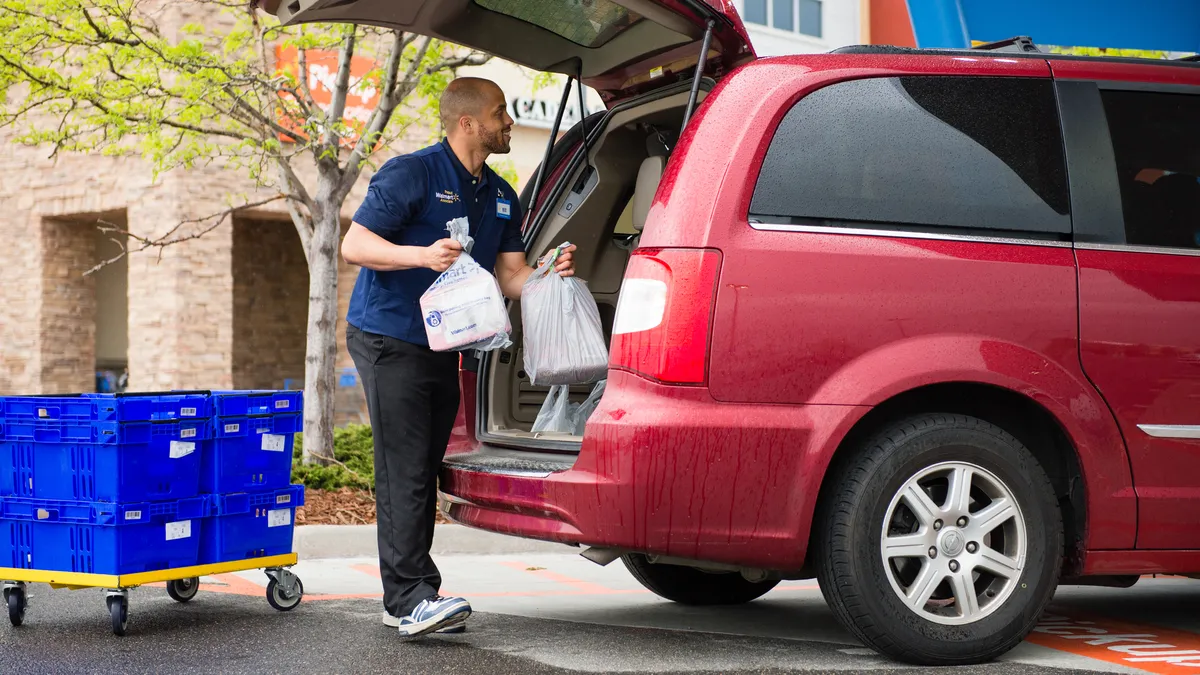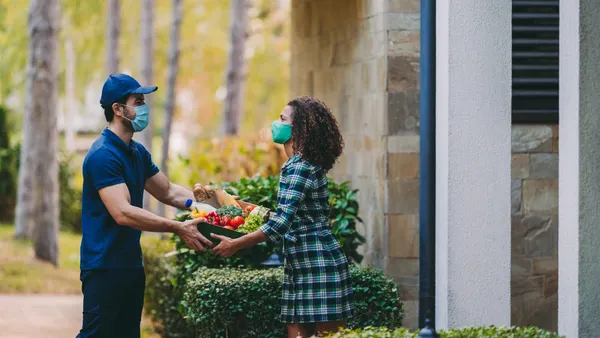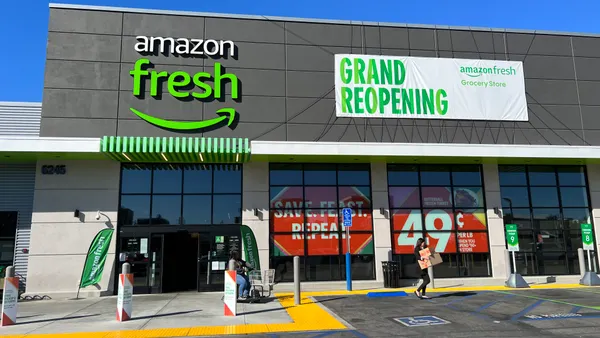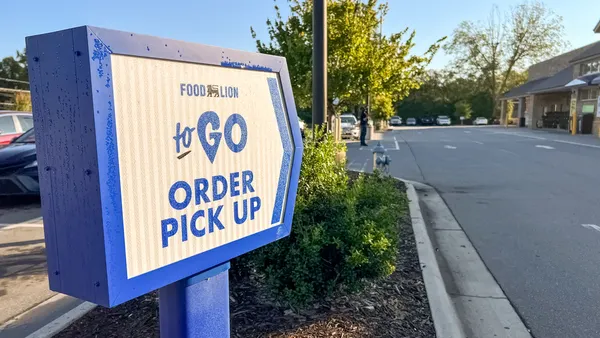Dive Brief:
- Thirty-one percent of U.S. households, or roughly 40 million, have used online grocery services like home delivery and pickup over the past month, according to new research from Brick Meets Click and ShopperKit. This is more than double the amount of monthly users since August 2019, when the firms estimated 16 million Americans had shopped online.
- Out of the online grocery shoppers surveyed, 26% said they used a service for the first time. Thirty-nine percent of users aged 60 and older said they were using online grocery for the first time. Total monthly order volume among users surged 193% and monthly order rates were up 19% compared to August 2019.
- The report, which is based on a survey of more than 1,600 U.S. adults, found that 30% of those that haven’t bought any online groceries in the past month, or roughly 16 million households, plan on doing so if the crisis doesn’t subside.
Dive Insight:
The coronavirus pandemic could lead more U.S. consumers to use online grocery over the long-term. While some may revert back to grocery shopping in-store, 43% of the survey respondents noted they were extremely likely or very likely to continue online grocery shopping after the crisis passes, according to the report from Brick Meets Click and ShopperKit.
That long-term adoption depends on whether or not shoppers have a positive e-commerce experience, Brick Meets Click's David Bishop told Grocery Dive.
"Some people are going to embrace this, and others are going to use it opportunistically for a temporary time period, and then some may be converted and say, 'I didn't think I was going to shop that way forever, but now that I did it, it's so easy,'" the co-founder said in an interview before the firm announced its latest report. "And by the time they get to the second or third order, now they have past purchases [saved], and searches and lists already made."
But due to the sheer volume of online orders during the pandemic, the experience hasn’t been top-notch for many customers. Shopping platforms like Peapod, Boxed, FreshDirect and Amazon Fresh have been having issues with long wait times, out of stocks and site crashes while other services, like Amazon Pantry, have temporarily shut down. This could leave a bad taste in customers’ mouths and be the reason they decide not to stick with online grocery shopping — or even migrate from one retailer to another.
"It's all about managing expectations," said Bishop. "Ultimately the customer doesn't really care how hard the process may be or how complex the problem is for the retailer. All they know is a retailer does or does not tell them whether a product is or is not available."
Not being able to find the items they need or navigate the site easily could be even more frustrating for elderly customers, who are more vulnerable to the virus's effects and have shifted their shopping online to avoid venturing inside stores. Before coronavirus, online grocery had less pull with older shoppers because of hefty delivery fees, produce quality and difficulty with returns, a survey from the International Food Information Council and AARP Foundation found. But due to circumstances, many of them now feel they don’t have a choice.
A growing number of grocers see an opportunity to make online shopping easier for elderly shoppers. For example, H-E-B has partnered with Favor to launch a delivery service for seniors that includes a dedicated phone line. The program allows senior shoppers to place an order on the phone and deliver the order within a few hours. The service is free for the first 30 days and includes a $10 tip to the driver. Raley's, meanwhile, has introduced a pre-packaged bag for seniors to purchase that a relative, friend or caregiver can pickup in-store on their behalf.
On Friday, several online providers serving primarily independent grocers, including DoorDash, Mercato and Rosie, announced they would waive delivery fees to shoppers aged 60 and older. The initiative touches more than 2,000 grocery stores, including Hy-Vee, Kowalski's Markets and Woodman's Market locations.
Sam Silverstein contributed reporting to this story.














